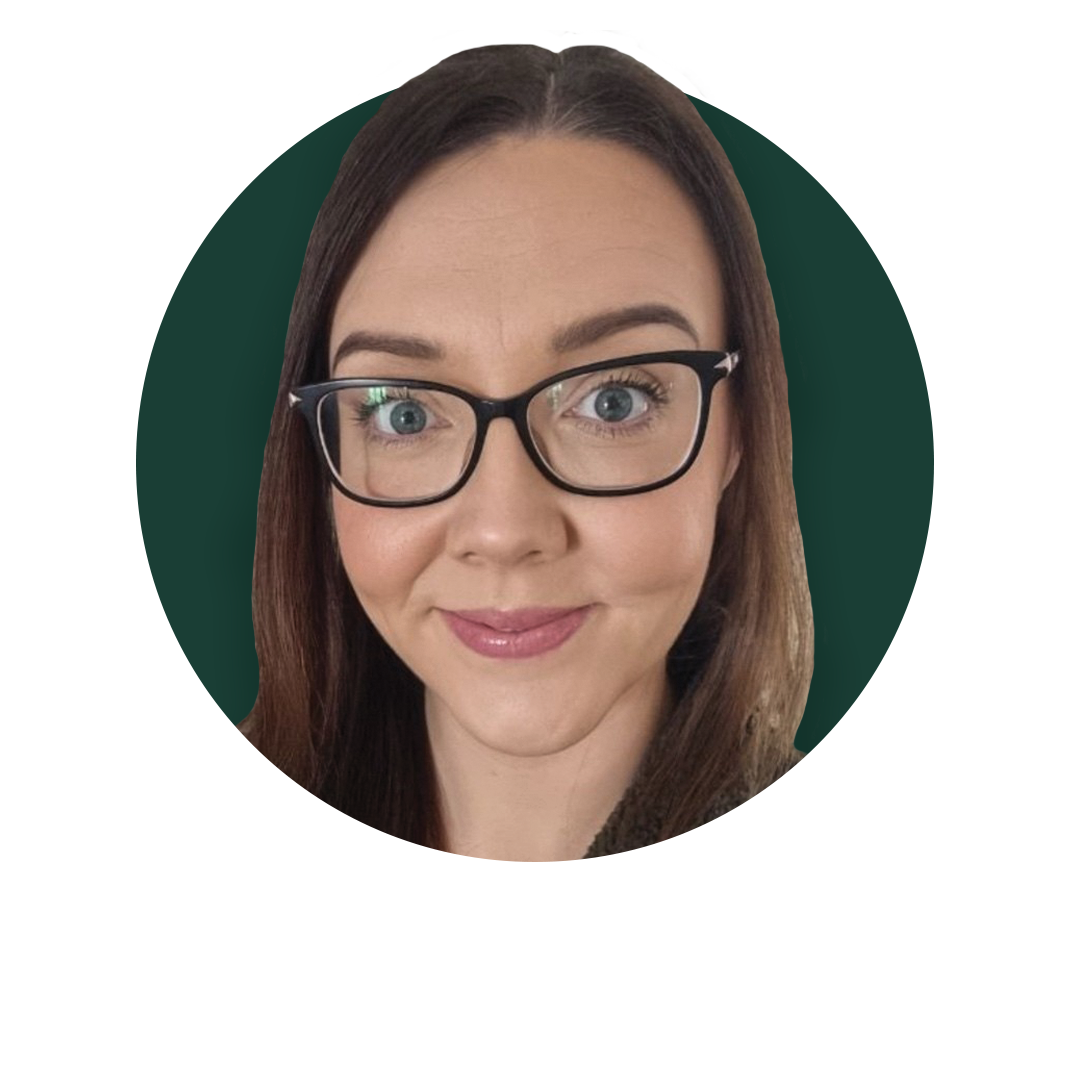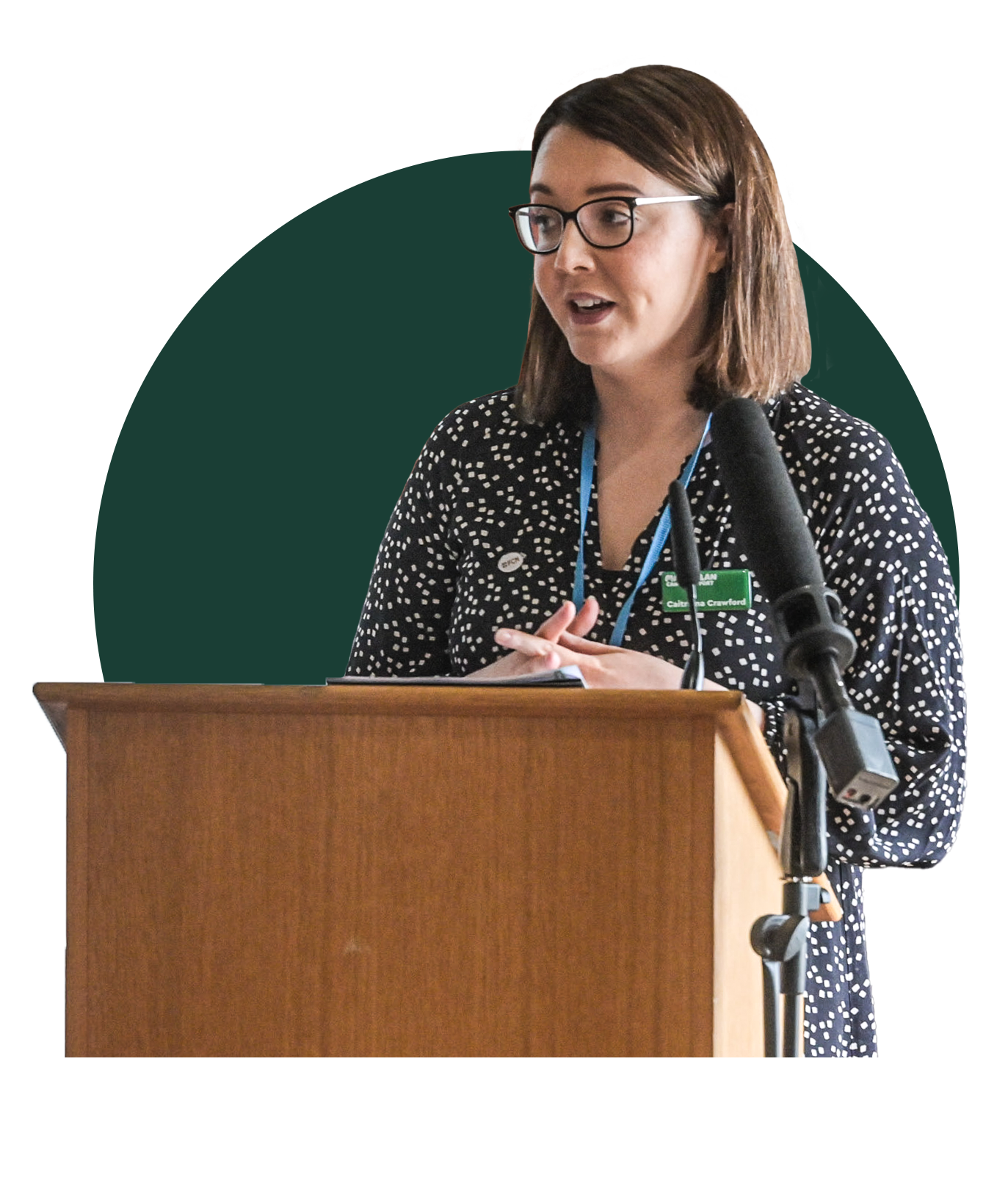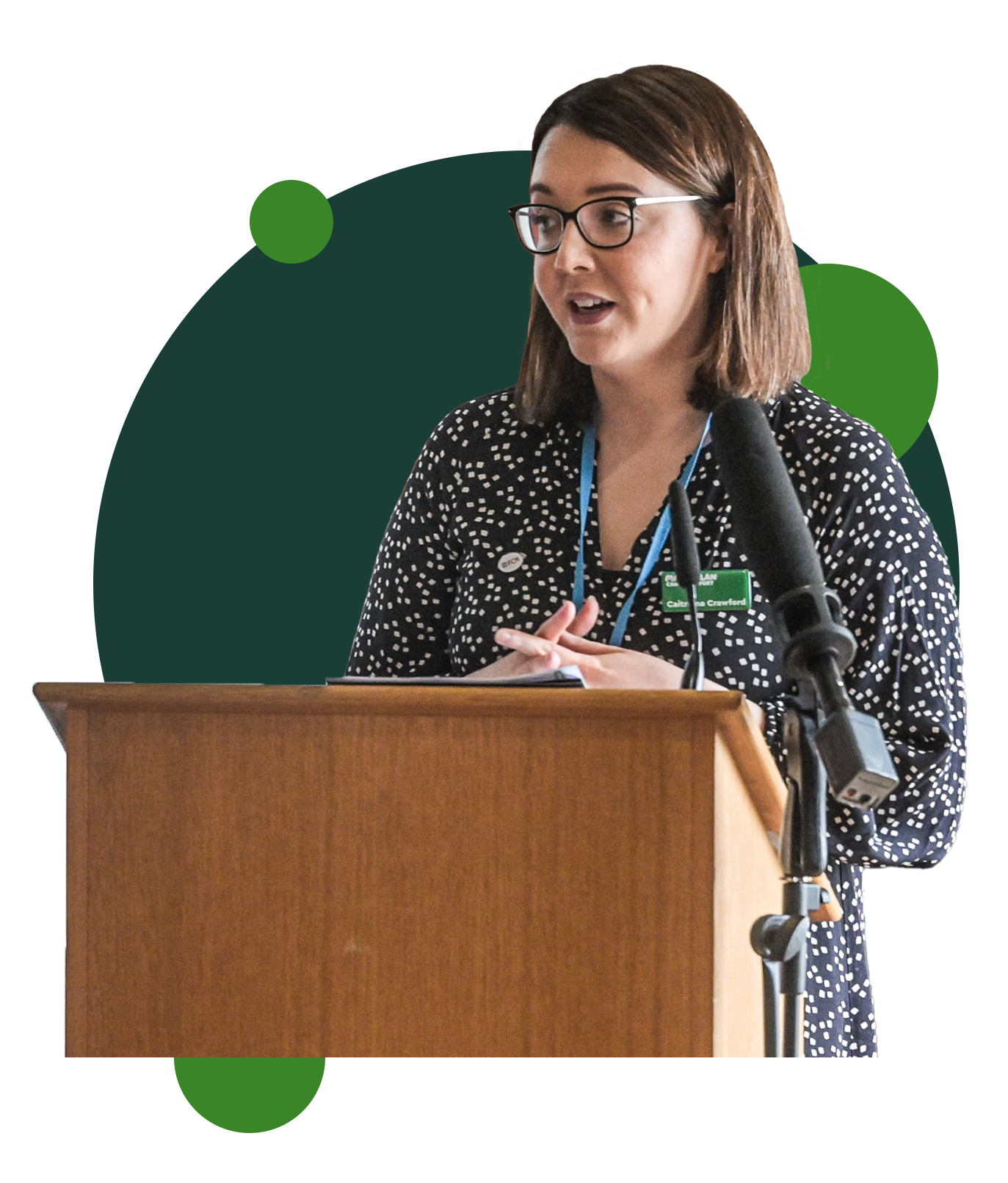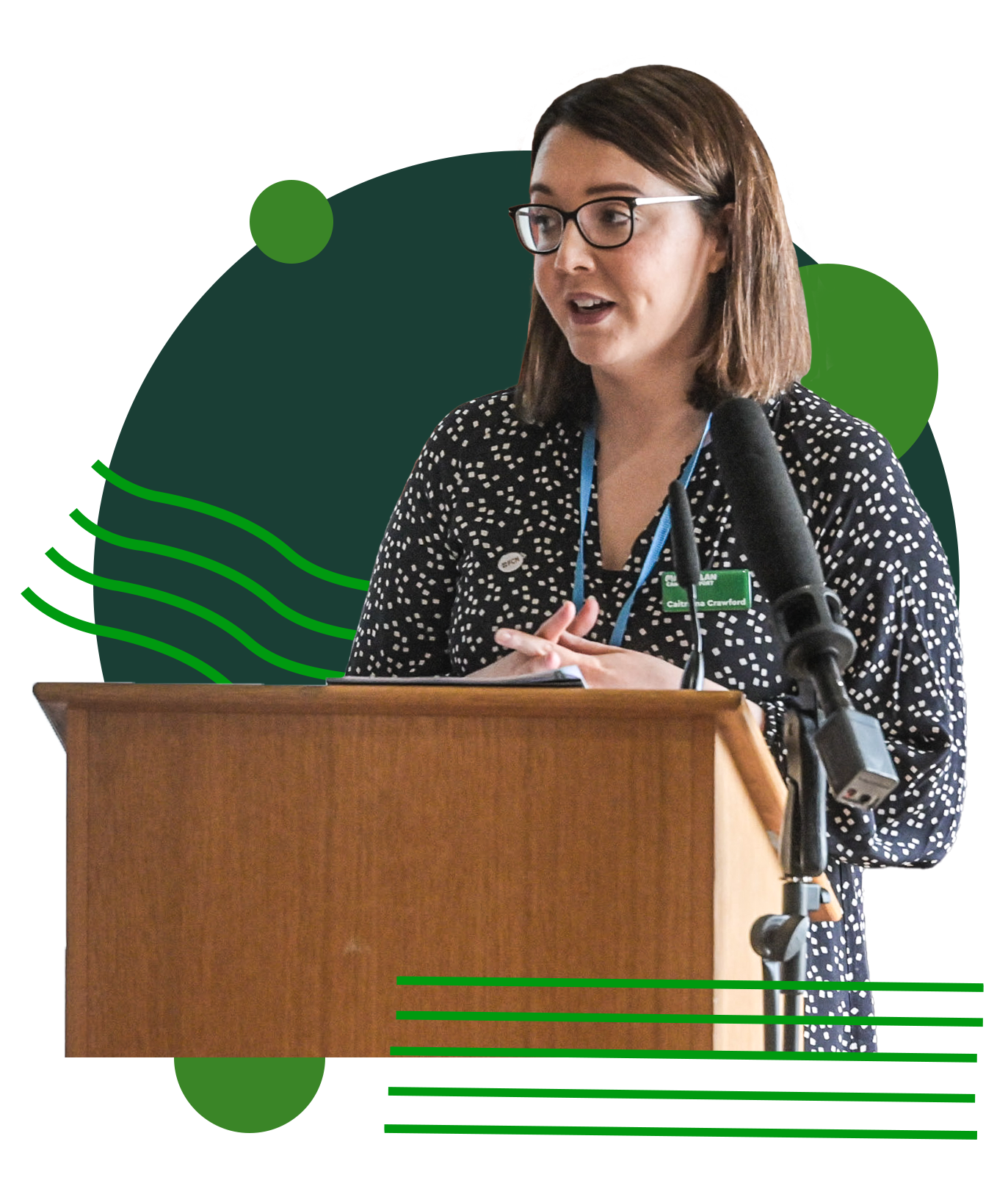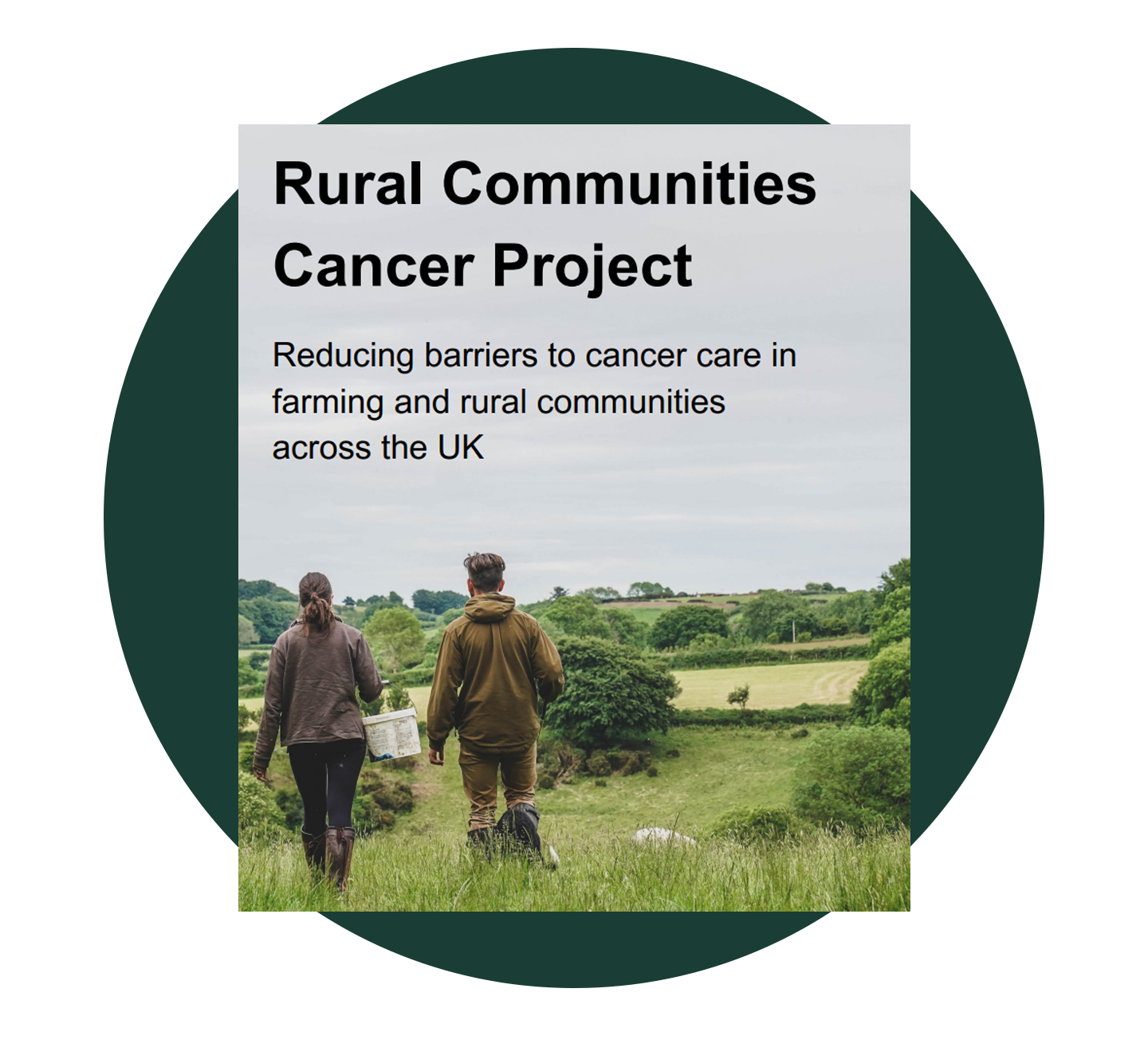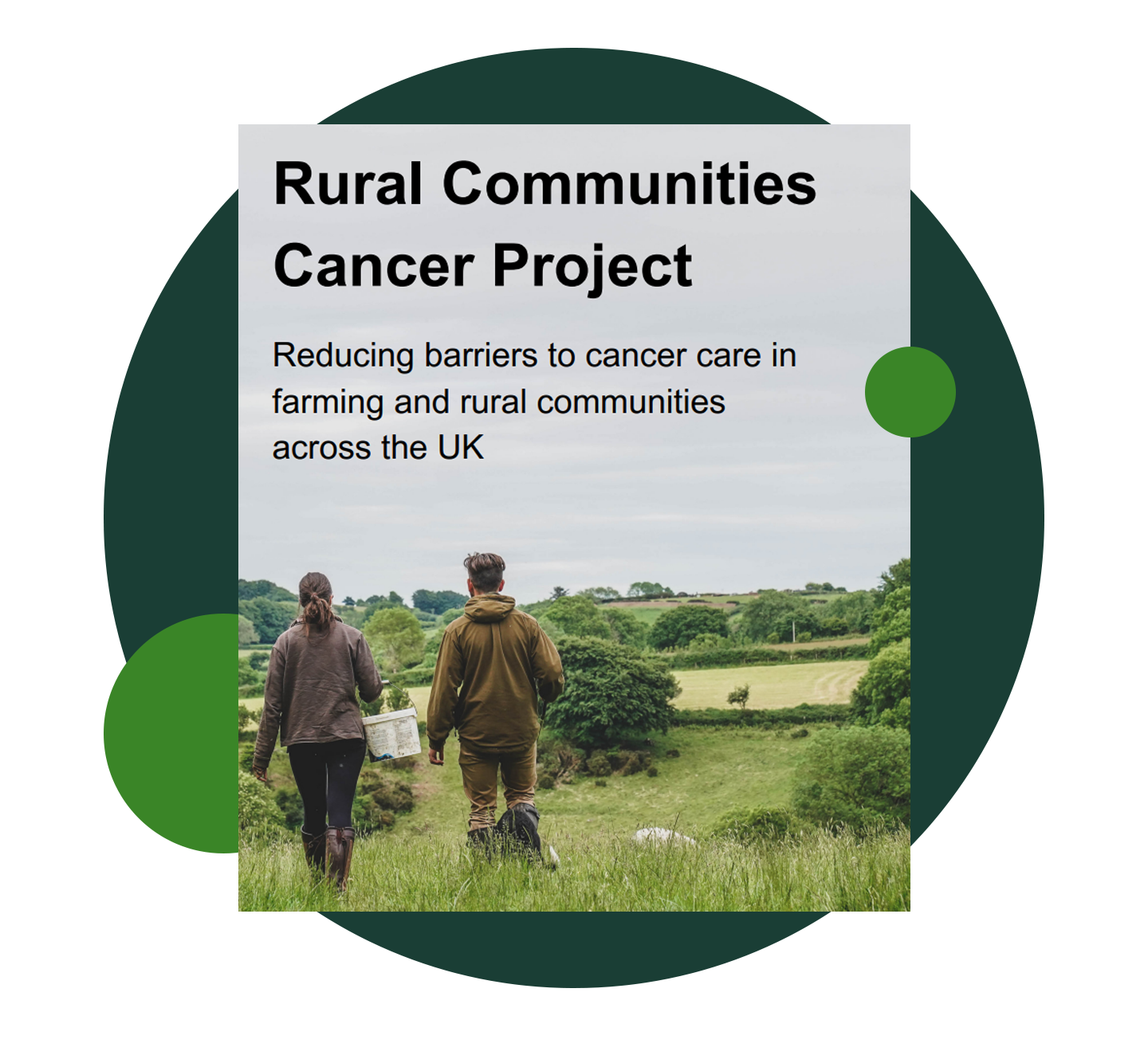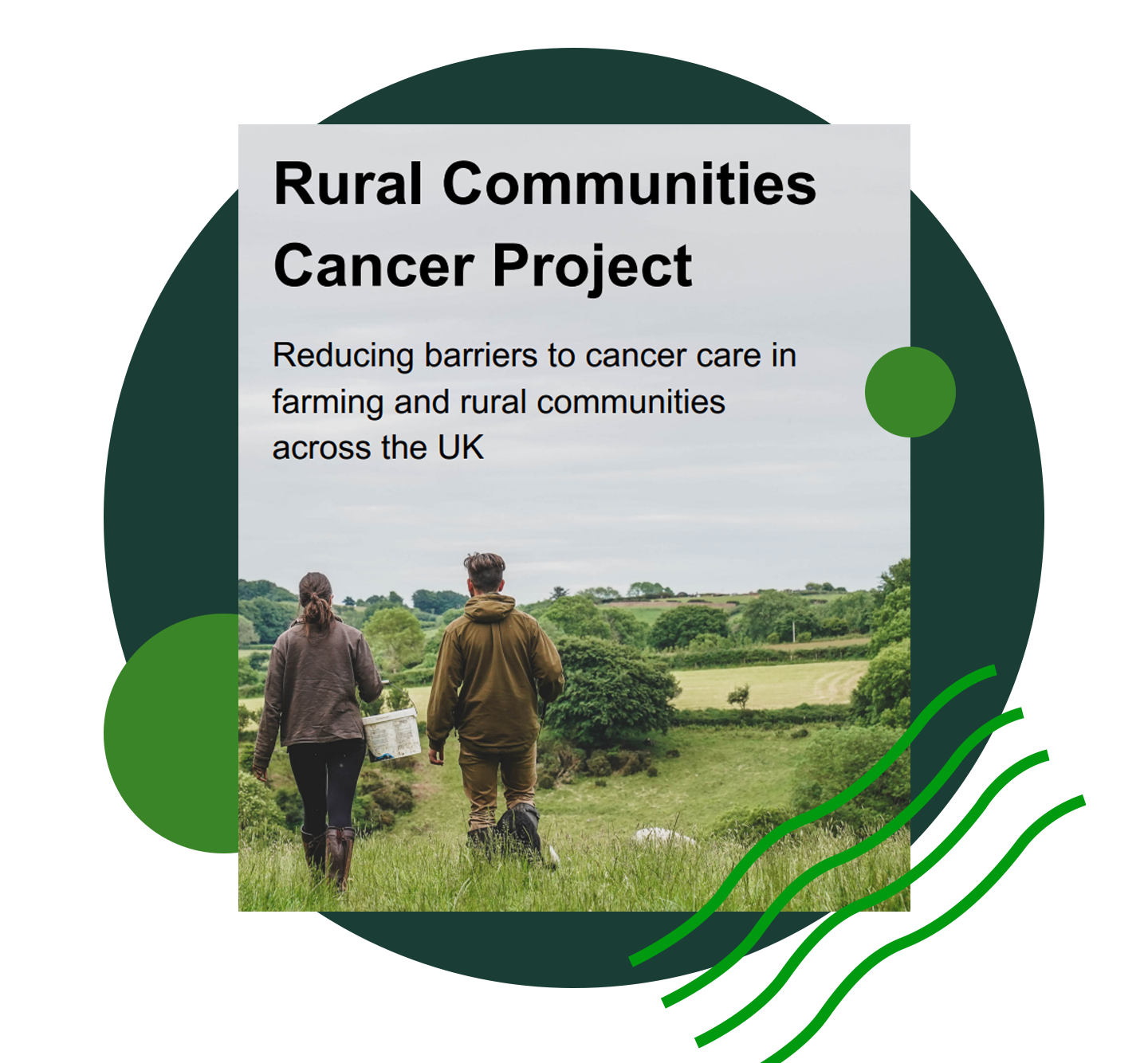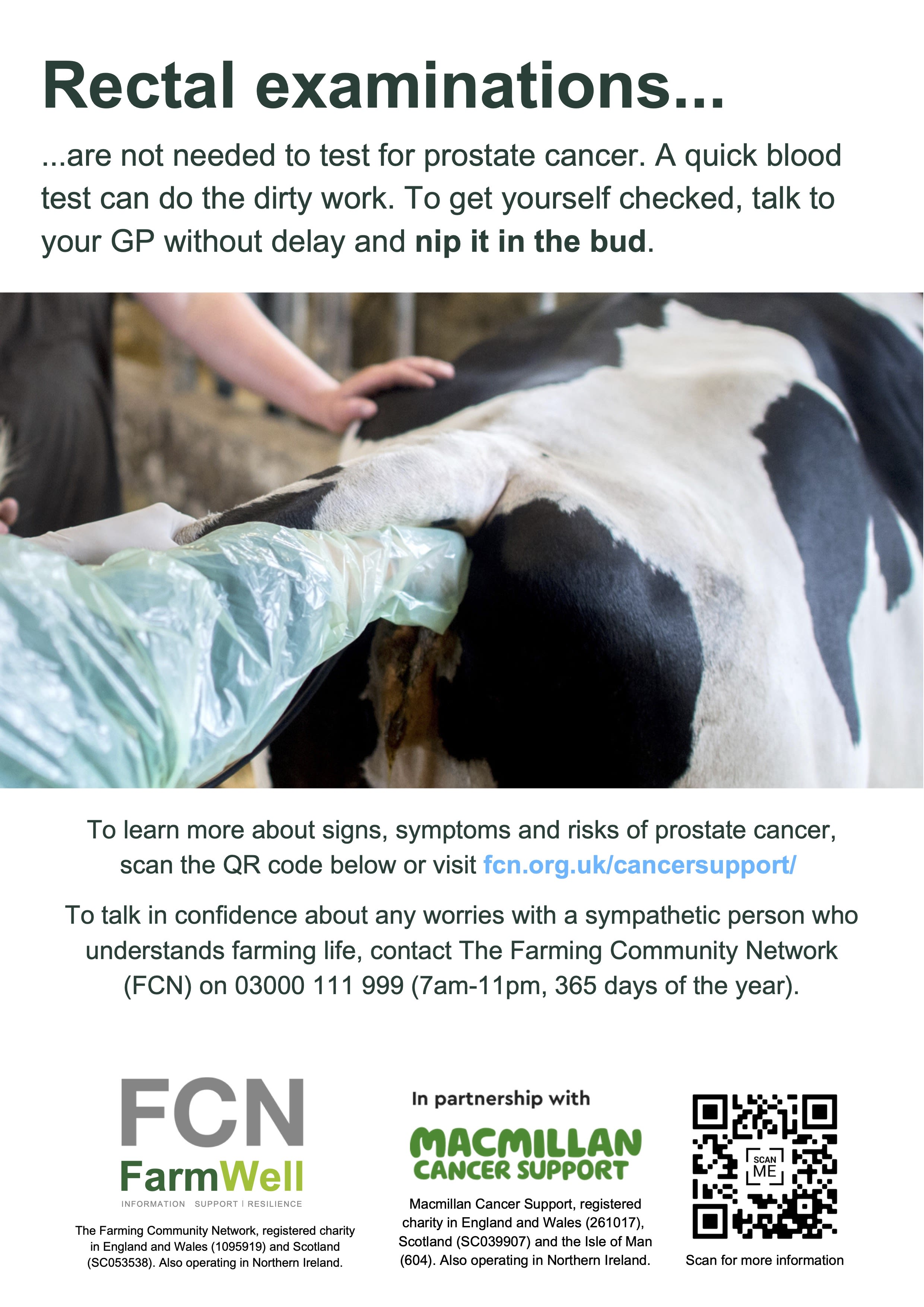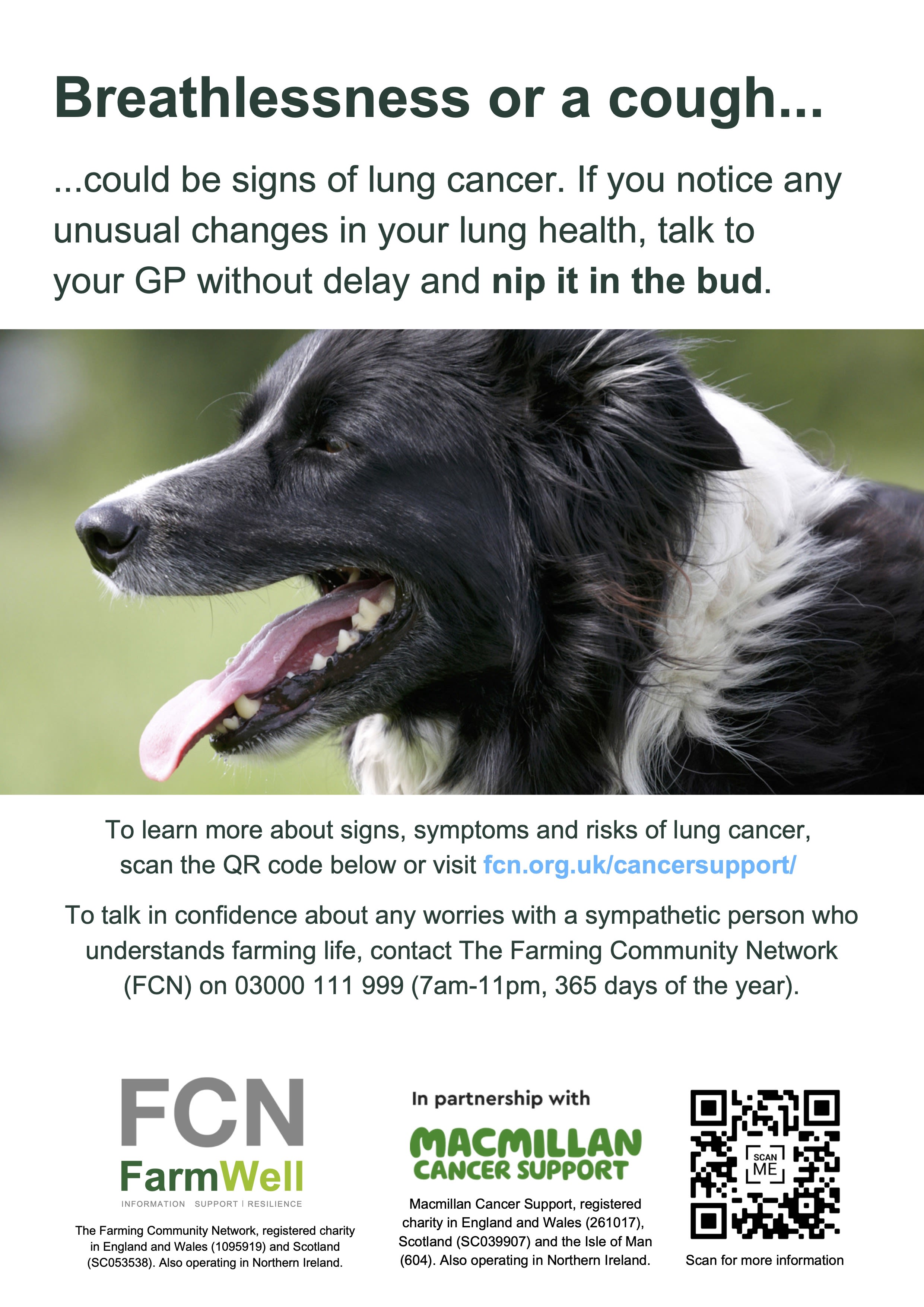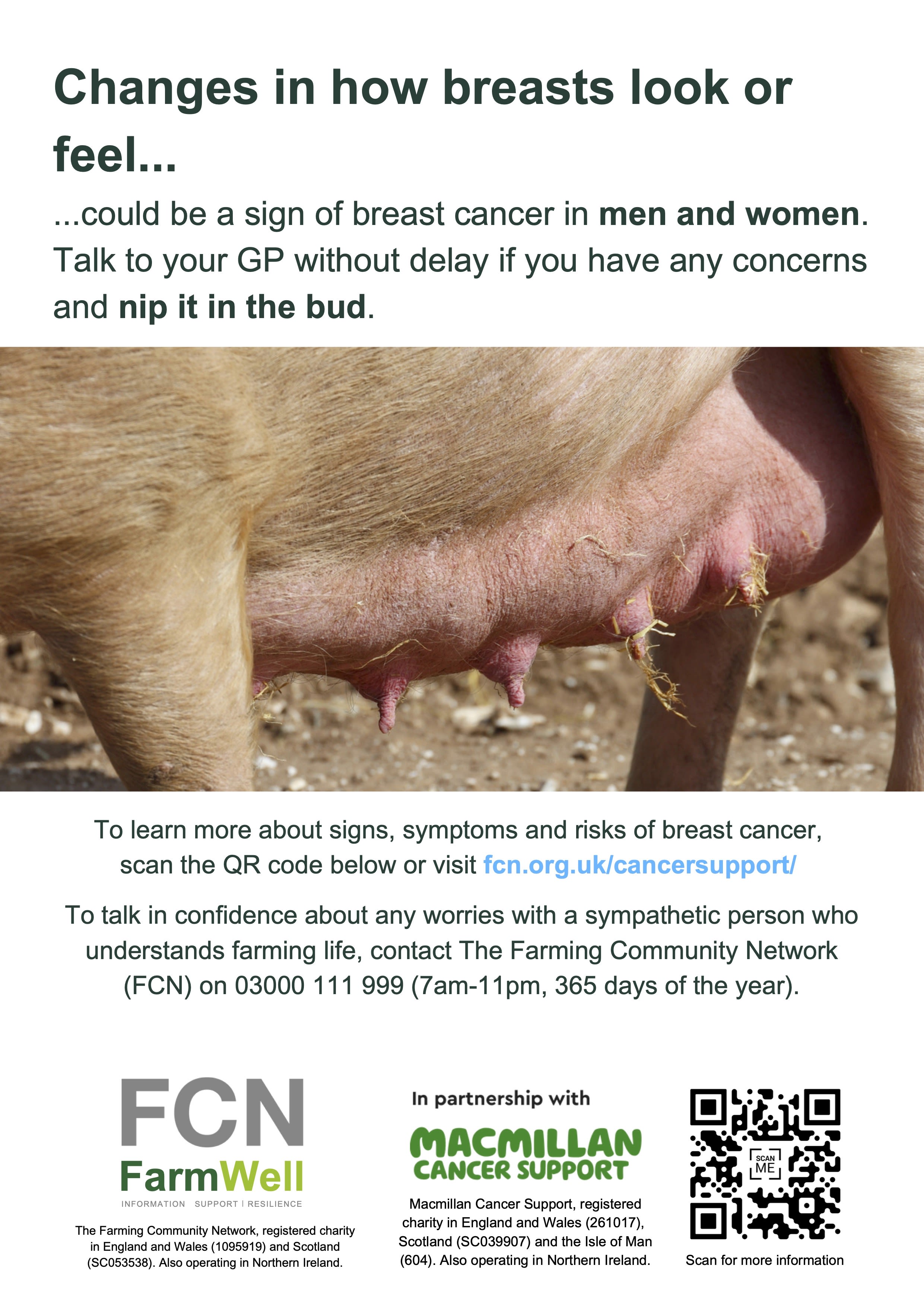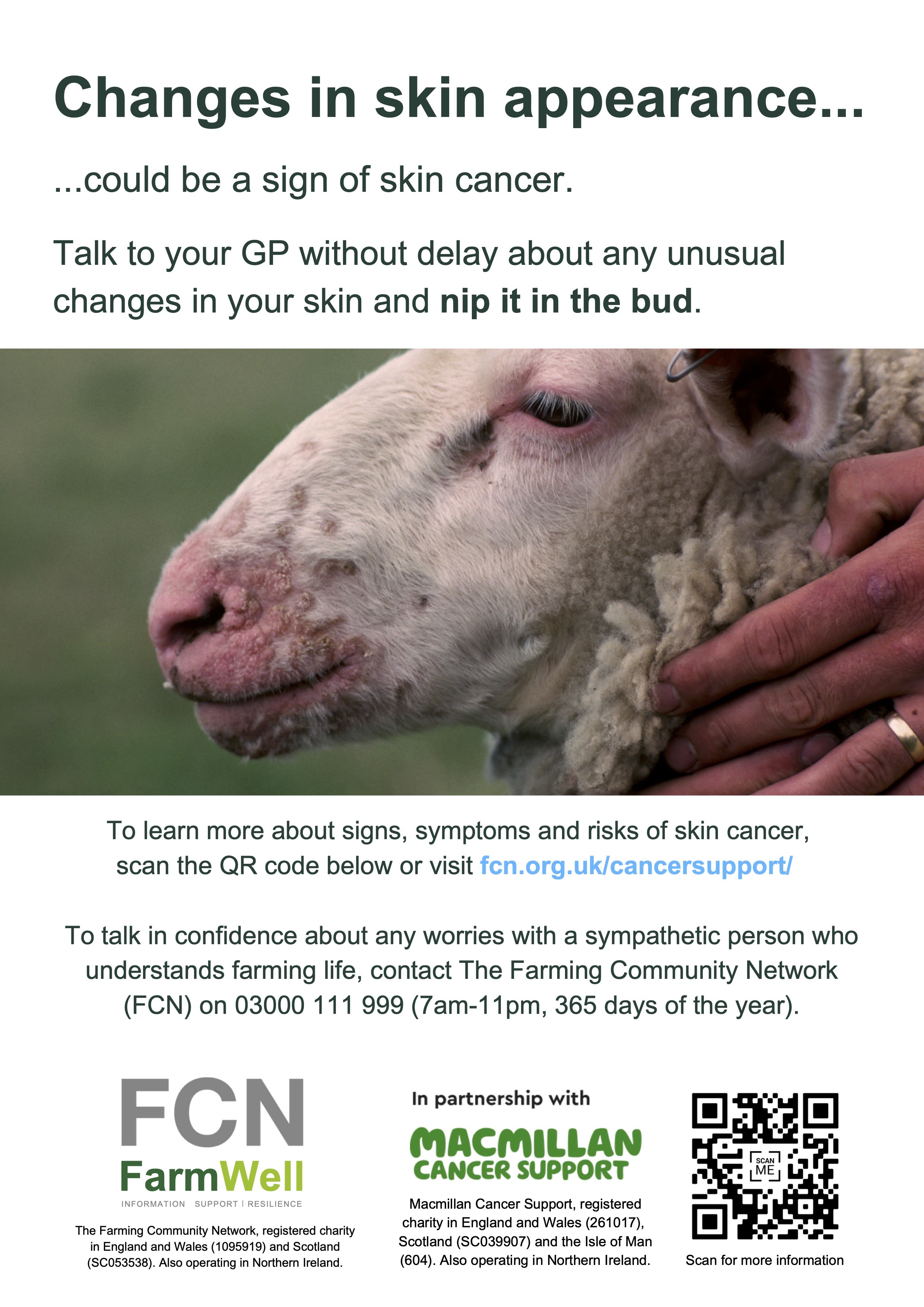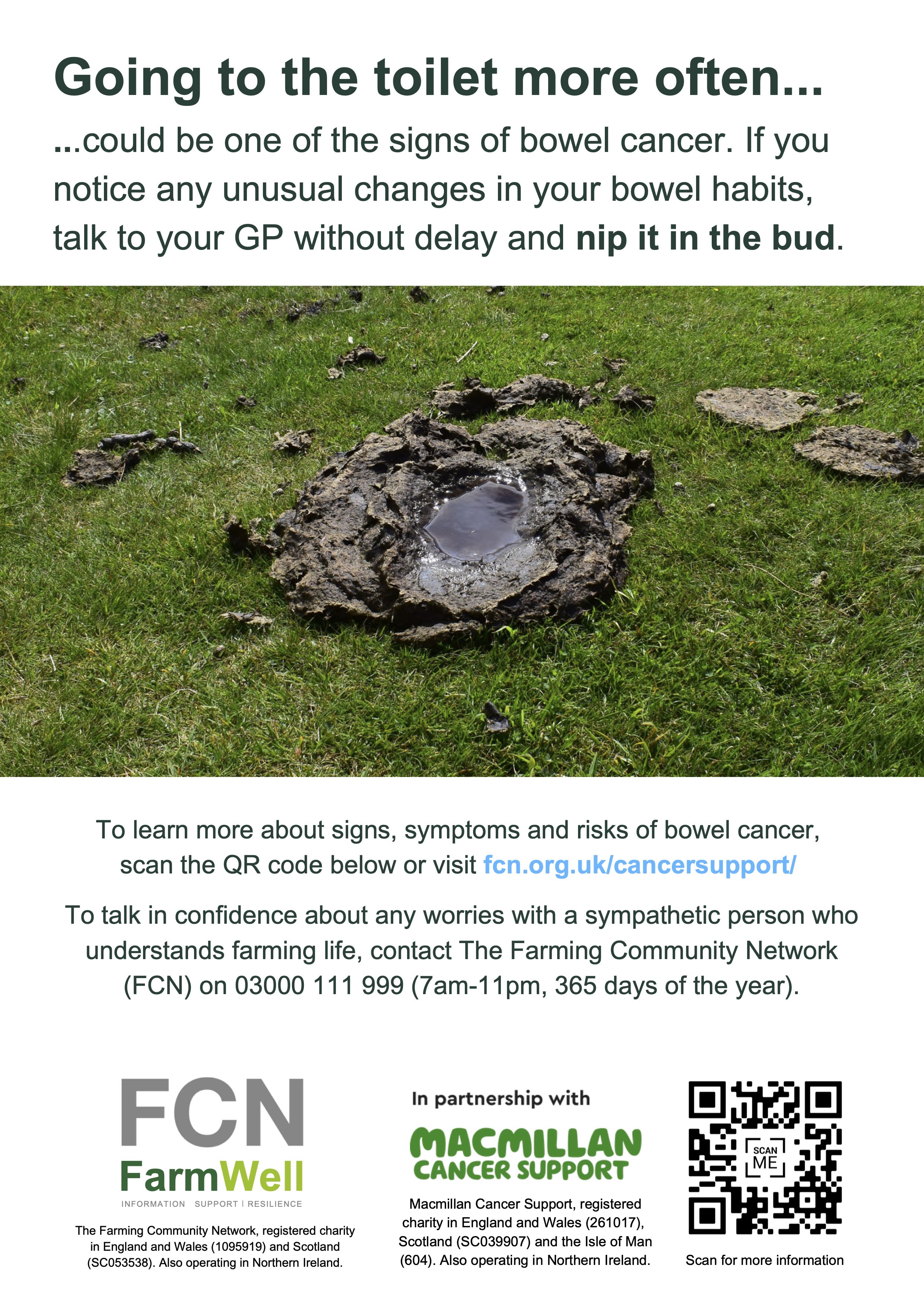Bringing cancer awareness to rural communities
Caitriona Crawford is the national manager for the Rural Communities Cancer Project in Northern Ireland. She tells Synergy about the importance of having a personal connection with patients
By Marese O’Hagan

Caitriona Crawford first saw the Rural Communities Cancer Project advertised when she was on maternity leave. Having a farming background herself – and dealing with her father’s health issues – the intended audience for the initiative immediately struck a chord. “With my own father going through ill health, and [him] being a farmer and supporting him through that, I just realised how fortunate he was to have someone who has a bit of background knowledge of cancer care, of the symptoms and signs,” Caitriona explains. “Because he had presented with quite worrying signs of a red flag referral.
“Fortunately, nothing came of it but I was very much the advocate for that and the voice pushing for tests and things for him.”
Her background in a farming family made Caitriona the ideal candidate to join the Rural Communities Cancer Project as the national manager for Northern Ireland. Though the project’s team members had a wide range of backgrounds professionally, each of them has a farming background in common. “It really does help us shape this project across the UK,” Caitriona says. This means the team is aware of how farmers tend to treat healthcare issues, she adds: “Farmers are very poor at getting themselves checked out, and they usually leave it to the last minute.”
Transferable skills
Caitriona is a Therapeutic Radiographer. She qualified in 2016 at Ulster University and went on to gain one of the first Band 5 posts in the North West Cancer Centre in Londonderry, which had just opened. She then went on to work as Band 5 radiographer for seven years, working as a pre-treatment radiographer as well as in clinics.
Caitriona has worked with the Farming Community Network (FCN) as part of the Rural Communities Cancer Project since 2024. She is currently on a two-year secondment from her role as a Therapeutic Radiographer and will return in 2026 when the project ends.
While she has an abundance of hands-on radiography experience, she has also made a concerted effort to be involved in patient feedback. “Another part of my experience [at the Northwest Cancer Centre] was part of the patient feedback working group,” she says. “I’ve always had a real interest in patient feedback. I joined that when the department first opened.
“Especially as a new service, it was so important to hear the experience of our patients to try and improve it. It’s important in any radiotherapy service, absolutely, but especially for a new service it was essential for us to get that patient view on everything.”
Caitriona’s three-pronged approach – consisting of her farming background, an abundance of career experience and an interest in patient feedback – made her the ideal candidate to drive the Rural Communities Cancer Project in Northern Ireland. In her outreach work for the initiative, she finds that people tend to listen to her once they learn about her background. “It’s really nice as a Therapeutic Radiographer to be able to add my experiences in terms of talking about what my patients would have faced,” she continues. “Because as soon as I talk – with my background and my clinical experience – people listen a bit closer.”
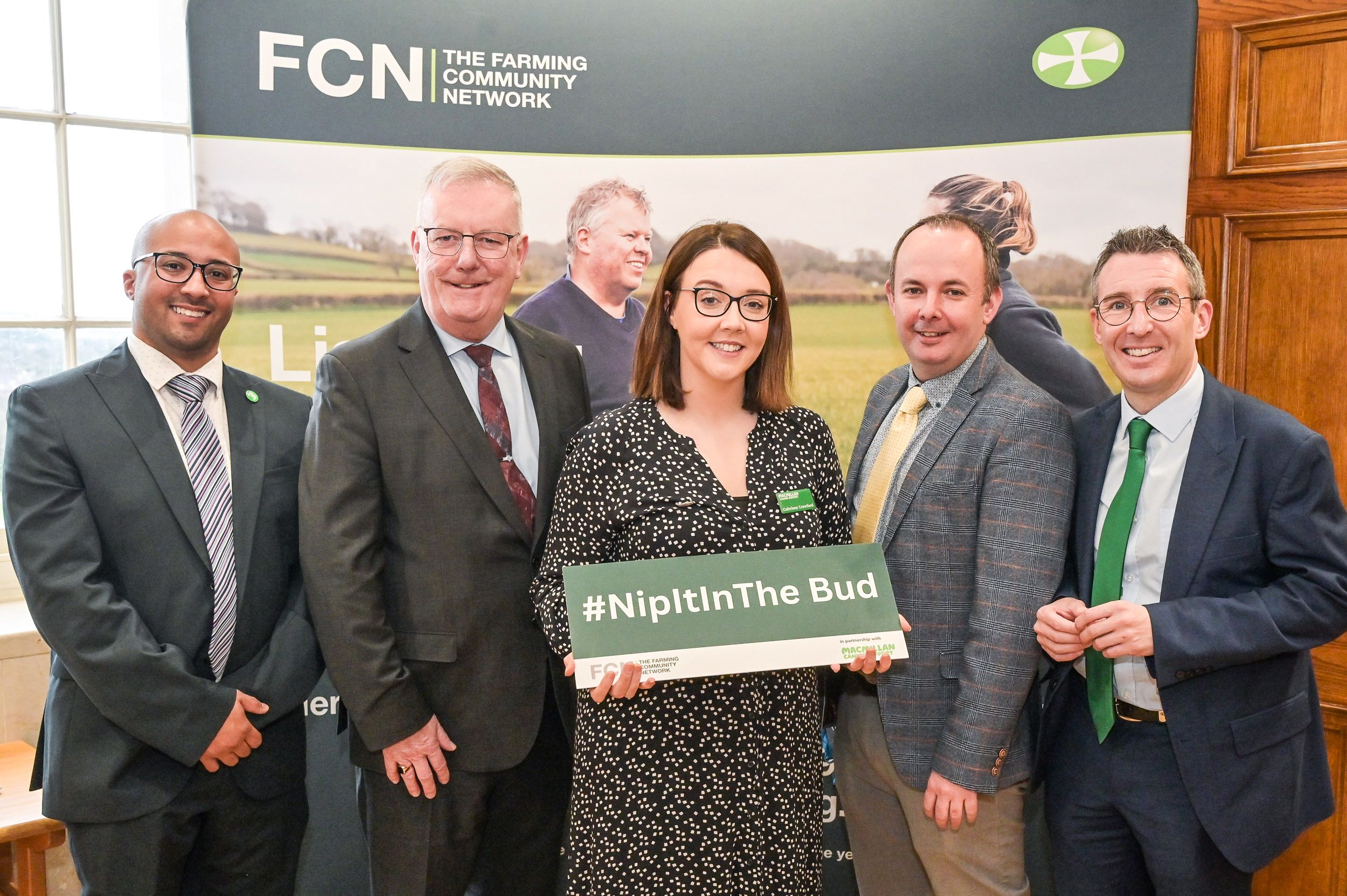
Caitriona pictured with Anton Morgan-Throne, engagement manager Macmillan Cancer Support, Mike Nesbitt Minister of Health NI, Jude McCann FCN CEO and Andrew Muir minister of agriculture, environment and rural affairs
Meeting people where they are
Issues faced by cancer patients – for example, financial hardships and transport for treatment – can be exacerbated when applied to those with farming responsibilities, Caitriona tells Synergy. “Quite often, especially when it comes to farming patients, the farm is still the number one priority no matter how sick they are,” she explains. “I’ve had patients who would have acute side effects from radiotherapy, but then they’d go home to do the milking that evening.
“I had a lady who wanted to get back to make dinner for the workmen who were doing the silage on her farm. That is the reality with farming – you don’t get to take that time off and have that protected sick leave.”
That’s part of the reason it’s so important that the Rural Communities Cancer Project meets its intended audience where they are. Covering the whole of the UK, the project is run by the FCN, a UK-wide charity that supports farmers and their families through hard times such as a cancer diagnosis, and Macmillan Cancer Support. Macmillan provides a number of important services for people living with cancer. “It really goes hand in hand for the farming charity and Macmillan to be working together to access those who are traditionally not as easy to access – farmers in particular – to encourage that early detection,” Caitriona says.
Macmillan can provide counselling services – not just for the cancer patient, but also for family members such as small children. “As a Therapeutic Radiographer, I have experience in empathising with patients as well as supporting family members,” Caitriona says. “Because you don’t just build the relationship with the patient, you also build it with the wider support network – the family that’s taken them. Quite often we’re supporting them while their family members are having treatment and we’re reassuring them.”
The ‘Nip it in the Bud’ campaign
Early detection was the driving force behind ‘Nip it in the Bud’, a campaign launched by the FCN in conjunction with Macmillan. Nip it in the Bud is “exactly what it says on the tin”, according to Caitriona. The idea is to encourage early detection of cancer by encouraging people from farming communities to get checked as soon as they notice a symptom of cancer.
Spreading the message of Nip it in the Bud led to a clever poster campaign designed to draw in farmers. “The idea for our posters is, when you first look at them they look like they’re farm related,” she explains. “They’re related to your sheep dog, or your cows, or your sheep. But when you read it and it draws you in, it is actually a message about your own health.”
Not only do the posters educate, they also provide a talking point and normalise the discussion of cancer. Normalisation is a central part of the Rural Communities Cancer Project. “It’s that talking point, and that normalising,” she says. “Getting those cancer posters into vets or merchants or into different marts and shows and things like that – that’'s how we’re hoping to target our audience.”
Though Nip it in the Bud cleverly spreads awareness of cancer through posters and other means, sometimes cancer education comes down to having the opportunity to ask the basic questions. “I would find that, with patients, they didn’t really understand what cancer is. So it’s all well and good saying ‘nip it in the bud; catch it early’. But why? Because it just starts in a few cells and it grows from there,” Caitriona says.
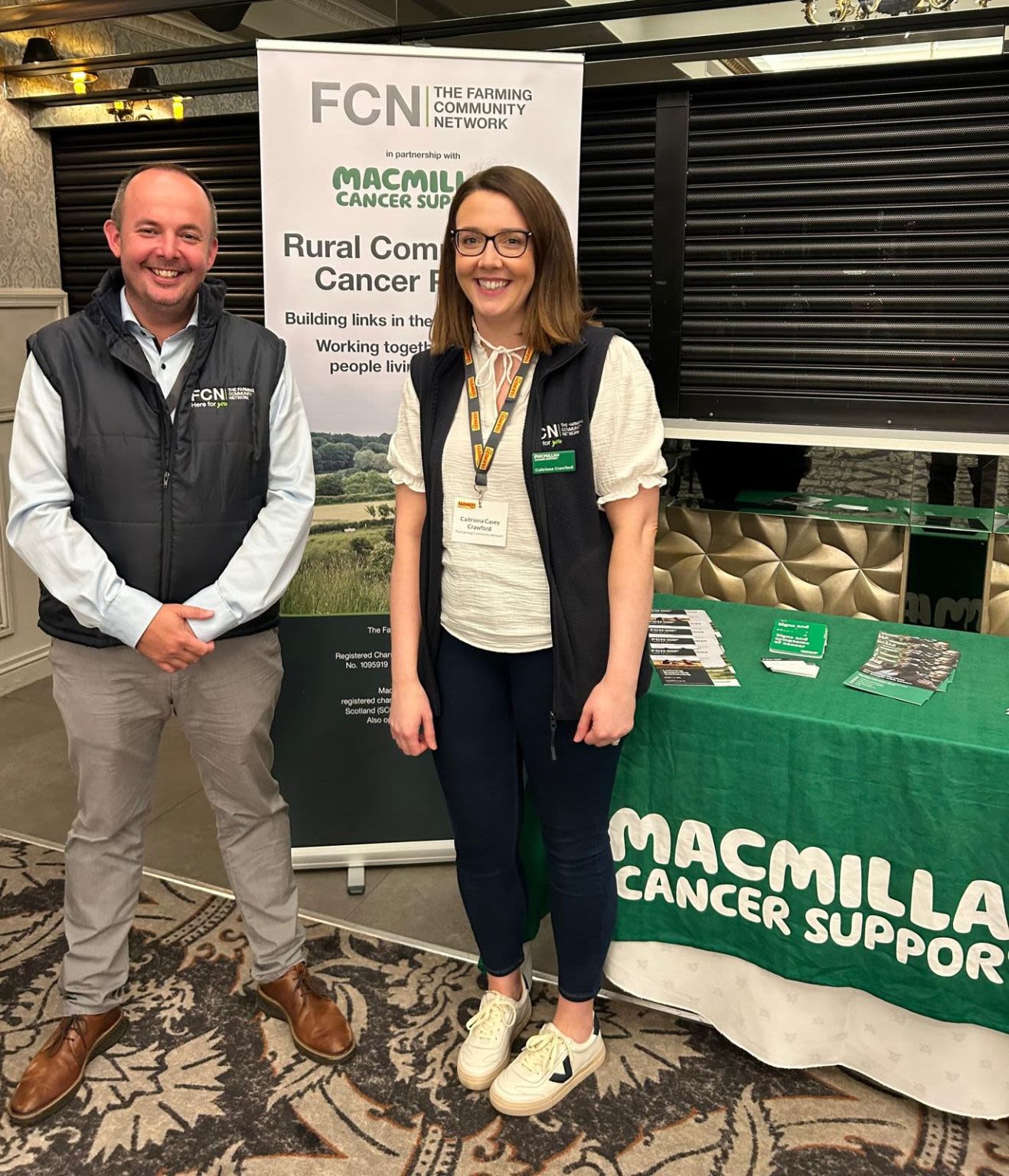
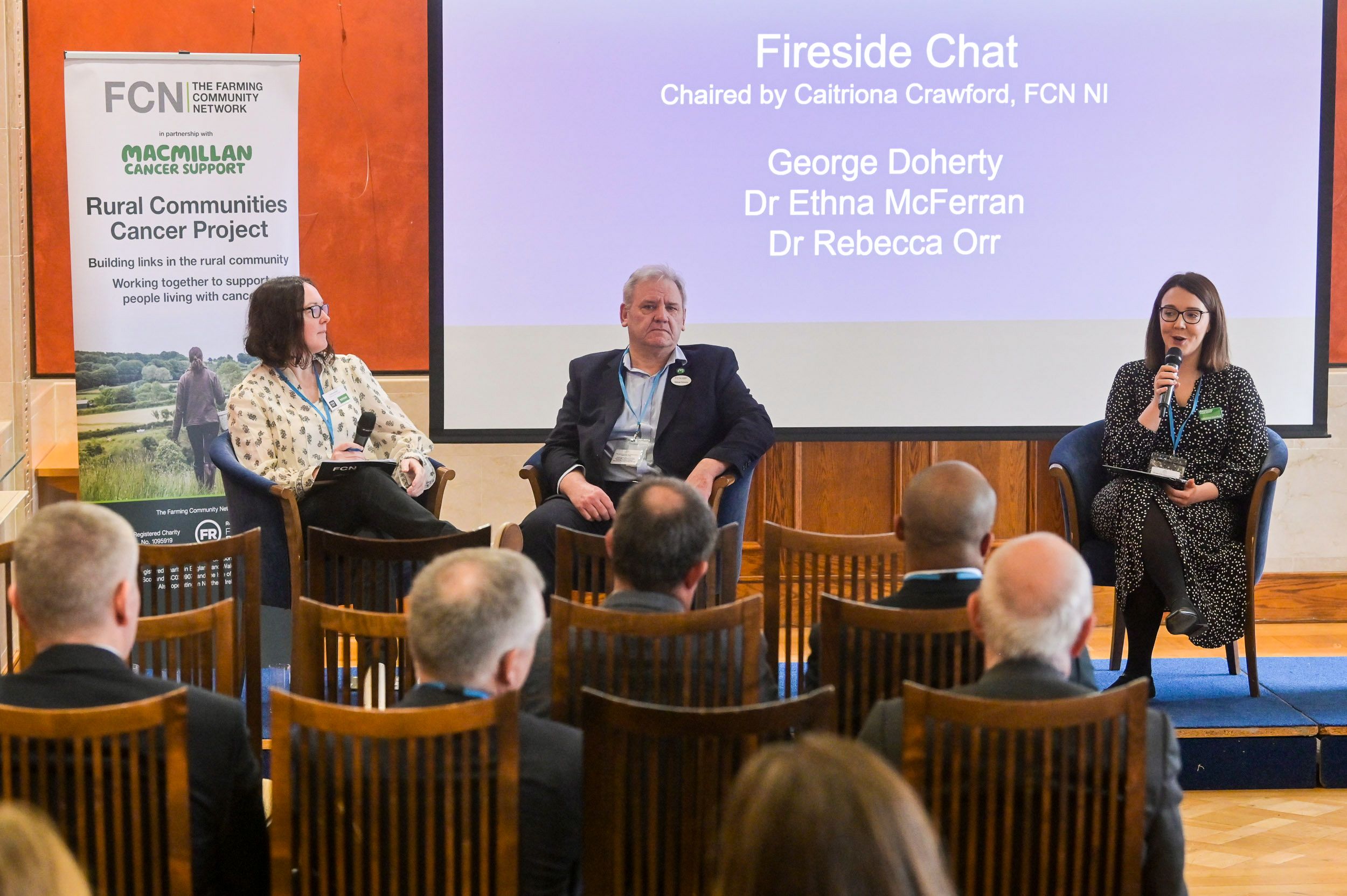
Leading a fireside chat at a Stormont reception, highlighting the importance of early detection and support among rural communities that face additional challenges
Leading a fireside chat at a Stormont reception, highlighting the importance of early detection and support among rural communities that face additional challenges
Leading a fireside chat at a Stormont reception, highlighting the importance of early detection and support among rural communities that face additional challenges
Making the message accessible
As part of the Rural Communities Cancer Project, Caitriona travels around Northern Ireland to visit events set up for farming communities. In February, this included visits to a number of agricultural colleges, as well as several marts as part of a FarmStrong initiative. Having a physical presence in these places makes the Rural Communities Cancer Project’s message much easier for farmers to access. However, Caitriona says she is mindful of anyone who might feel triggered by seeing cancer awareness signage or information at these places. The empathy she gained from her time as a Therapeutic Radiographer is useful here. “One example is when I came across a father of a patient who was really quite upset by seeing [us] – he just wasn’t expecting to see us at a mart,” she says. “He was really willing to come over and chat to us. But I think because it caught him unaware, it did trigger some emotions for him.
“He was able to tell me about it, and then I was able to say: ‘What was it like travelling for treatment every day? I’m sure that was a financial burden. And I’m sure that was hard for you, too; it must have been very tiring because you were farming at the time as well.’
“And he said: ‘You understand.’ That completely relaxes and reassures them, and makes them feel listened to and heard and understood.”
This push for accessibility also covers the project’s ambition to make its cancer awareness message accessible to migrants. “That’s another area that we’re trying to tackle in terms of our rural communities,” Caitriona tells Synergy. “We’re working with businesses that employ migrant workers, and a lot of farms employ migrant workers as well. It’s how we’re then trying to reach those. For example, today I was driving home and I heard a cancer awareness campaign on the radio, but it was in English. For our migrant workers to hear this cancer information and support, it’s usually in their first language. There is definitely a lot of work that could be done there.
“Macmillan has resources in different languages. I am then able to go to employers of migrant workers and say: ‘Look, if we can put these in your staff room, in your HR packs, we can get this message out to your employees.’”
The reception
With such an effort to reach farming communities in rural areas, what has the feedback been like? “It’s been very well received,” Caitriona says. A recent awareness session with the farming community in County Fermanagh saw the group open up once Caitriona mentioned her own farming background. “As soon as I started talking and empathising with them in terms of the time they have to be off the farm, the reality of undergoing cancer treatment as a farmer, they completely opened up and started sharing their stories. Where outside this project would you have that opportunity to facilitate those conversations?”
Word has spread among the farming community – not just about the initiative, but also about basic cancer awareness. It all comes back to the goal of early detection shared by the Rural Communities Cancer Project, Macmillan and FCN. “We have also had people coming either from social media, where they see our material, or maybe in different newsletters,” Caitriona continues. “Or, for example, if we have stands at conferences and we are hearing stories where people have seen us. Or they have a conversation with us, or they might read about [us] and say, for example, a farming publication has triggered them to go get something that’s been niggling at them checked.
“Thankfully, we haven’t heard of any cancer diagnosis yet through that, but it’s just normalising getting things checked early for that reassurance and early detection.”
More about the Rural Communities Cancer Project
To find out more about the FCN’s partnership with Macmillan Cancer Support – and to access Nip it in the Bud resources – click here. The FCN is contactable 365 days a year, 7am-11pm.
The Rural Communities Cancer project is currently running a survey to gather information on farmers’ experiences of cancer in rural communities.
Read more



